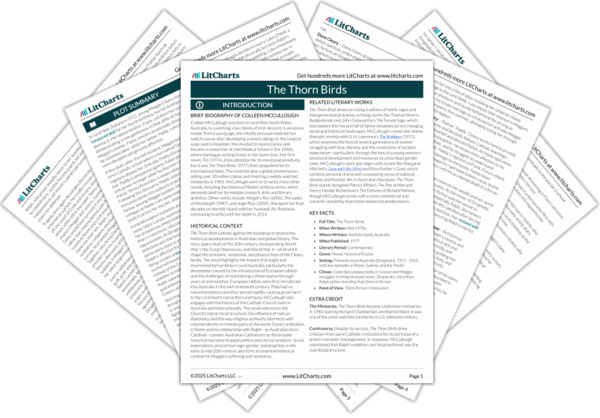Ralph’s performance at the funeral is a careful exercise in maintaining appearances. His praise of Mary as a “pillar of the Church” is a hollow gesture, masking the bitterness of who she was as a person and what she thought of the church. The stench of her decaying body, barely concealed by roses, reflects the rot beneath the ceremony—the corruption of wealth and power disguised as piety. When the will is read, the Clearys accept their fate with quiet resignation, valuing stability over confrontation. By absolving Ralph of blame, Paddy denies him even the release of honest anger.
